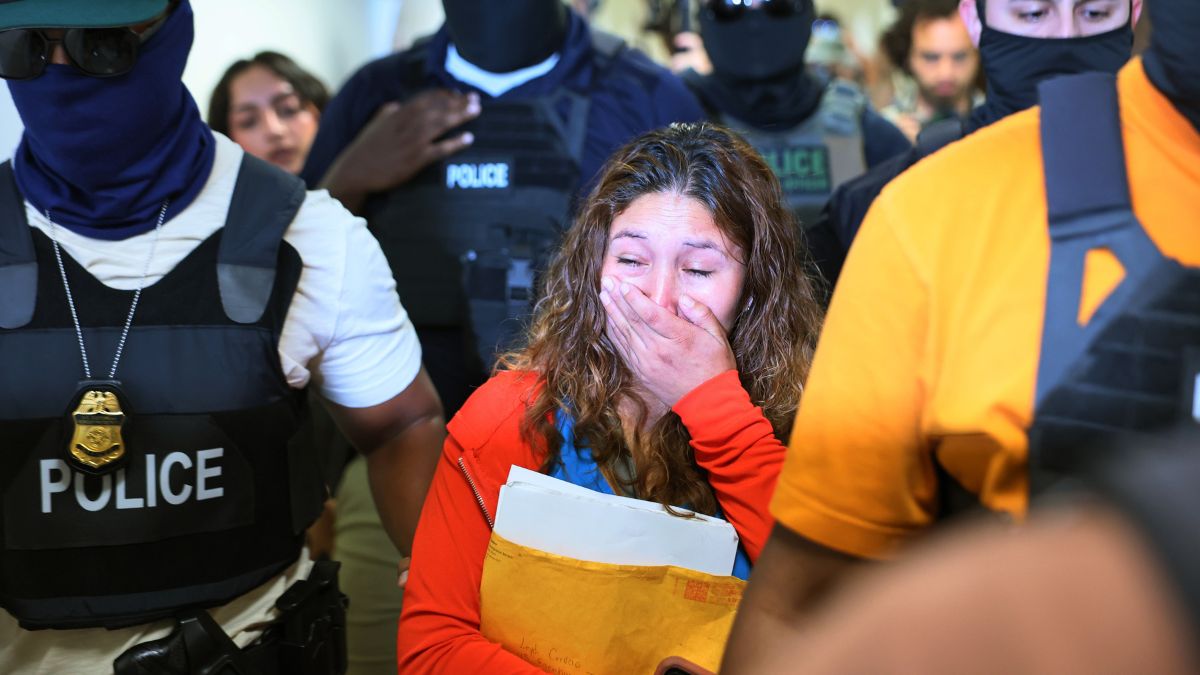
Photo by Michael M. Santiago/Getty Images
Those who defend others may see consequences.
The U.S. Department of Justice is trying to impose penalties against a lawyer who tried to stop the deportation of his client.
This move suggests the Trump administration is stepping up its efforts to carry out large-scale deportations. The request for sanctions against California-based attorney Joshua Schroeder is seen by many as a direct result of a presidential order signed in March. That order focused on immigration attorneys for what the administration claims are “pointless, unreasonable, or harassing” lawsuits.
Earlier this year, Joshua Schroeder managed to briefly delay the deportation of his client, a Hmong man from Laos, by filing legal motions. However, the Department of Justice has now filed a request against Schroeder, claiming that he made “many baseless arguments” in his filings and showed a “pattern of intentional or reckless false statements.”
The government is asking for “significant” financial penalties against Schroeder, who works alone and specializes in constitutional law, intellectual property, and immigration law, per The Guardian. Schroeder’s efforts to keep his client in the country were not successful in the end, and he will be punished for doing his job to defend his client.
Representing immigrants may result in fines for lawyers
This push for sanctions comes as Donald Trump has made it clear he wants to take strong action against immigration attorneys and firms that he believes are involved in “dishonest behavior that weakens immigration enforcement.” In a March order, the president told the U.S. attorney general to prioritize seeking penalties against lawyers and firms. Schroeder seems to be the first lawyer personally targeted under this new policy.
He told Politico that the sanctions request reminded him of Trump’s actions against big law firms connected to people the president sees as his opponents. Schroeder said, “It reminds me of the executive orders that are really targeting these big law firms. They’re able to go all the way down to the very bottom, that’s where I am — no offense to myself. … It’s top to bottom. It’s not just this elite struggle.”
Schroeder’s client was a Hmong immigrant who came to the U.S. as a child. He later served prison time for attempted murder. When he was arrested, he was living in Oklahoma with his wife. He was detained by U.S. Immigration and Customs Enforcement during a routine check-in in April. Schroeder, working for free, filed an emergency request in a Texas court in May to stop the man’s deportation.
In his legal arguments, Schroeder said sending his client back to Laos would put him in “direct danger to his life and safety” because of the Hmong people’s history of helping the U.S. during the Vietnam War. Schroeder also pointed out the administration’s use of the Alien Enemies Act in deportations and argued that this law could be used to “target any immigrant or US citizen the government dislikes.”
Even though Schroeder temporarily stopped the deportation, his client was moved to a detention center in Guam and was eventually deported in June. Another judge dismissed the case, ruling that the government was deporting the man under the Immigration Nationality Act, not the Alien Enemies Act, as Schroeder had claimed. In its filing, the Trump administration argued that Schroeder’s actions deserved punishment, saying he knowingly made false claims and acted dishonestly.
The government’s request stated that Schroeder “refused to give clear answers” about his legal arguments and that his “avoidance shows he knew he was wrong and didn’t want to admit it.” The Department of Justice added, “Even after being warned multiple times that his client had a valid deportation order, Schroeder kept trying to delay the lawful process.”



Published: Aug 12, 2025 03:43 pm